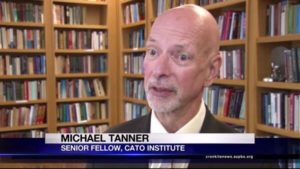Hannah Lefevre, a sophomore and member of the Lawrence Debate Union at UVM, shares her thoughts on whether Income Inequality is a threat to our democracy below!
“Growing income inequality is a threat to our democracy because it inhibits those facing income inequality from experiencing the same privileges that those who are financially stable are able to experience. This allows for the class divide between the rich and the poor, as well as the rich and the middle class to increase and puts more power in the hands of those who have the privilege to experience that power. This then translates to the upper class having more say in government decisions because they are the ones who end up holding positions of power in congress and they are the ones who have the most accessibility to voting resources. These voting resources include transportation to polls that are typically located in suburban neighborhoods or other locations that aren’t as accessible.”
Like what Hannah had to say? Here are some related articles to income inequality, voting access and representation!
The Atlantic: Why Are the Poor and Minorities Less Likely to Vote
Class Bias in Voter Turnout, Representation, and Income Inequality


